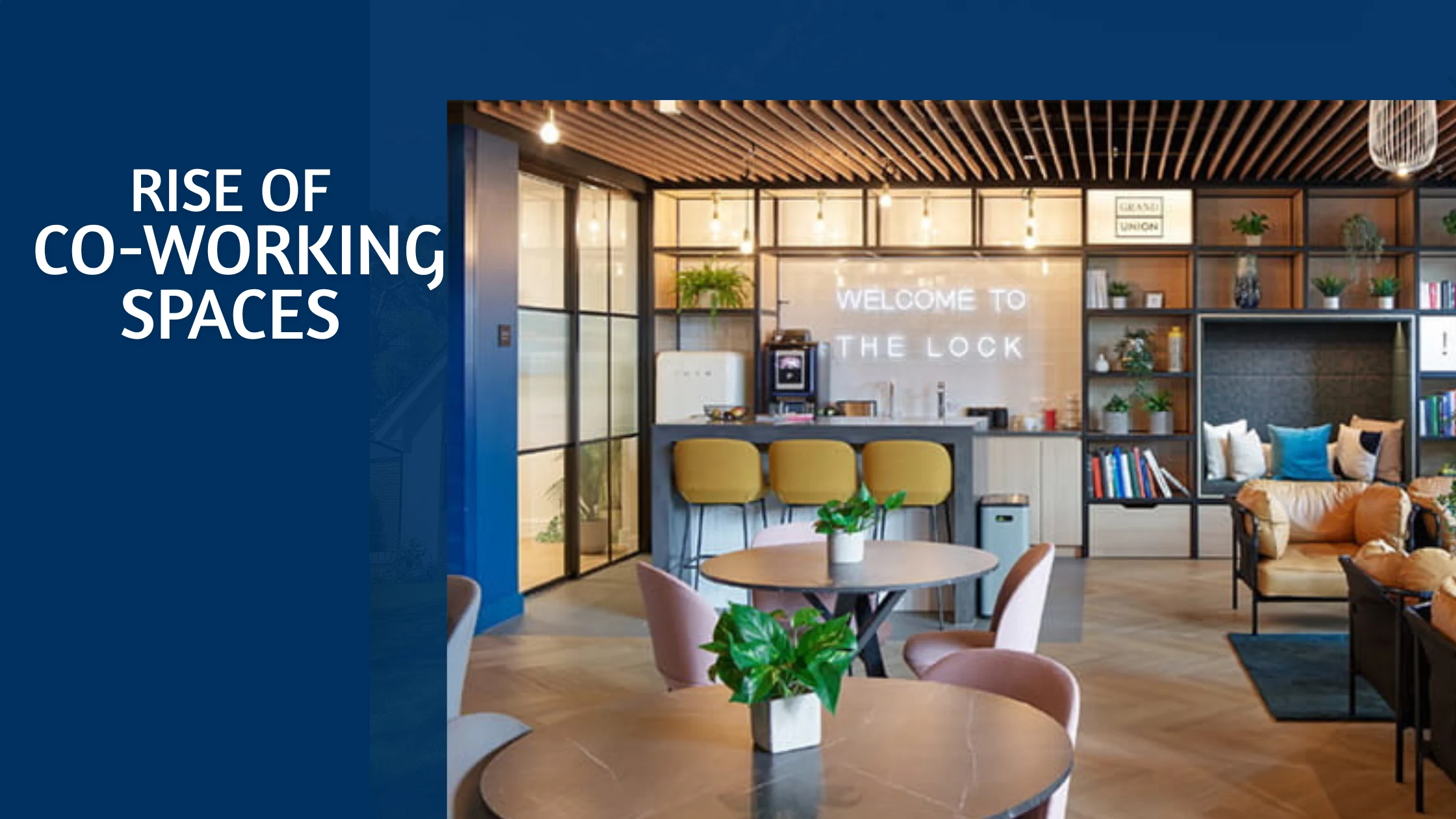Rise of Co-working Spaces
Read latest blogs and articles from Housystan

The Information mentioned here was last updated on:
29/1/2026Rise of Co-working Spaces: Redefining the Modern Workplace
In the past decade, the concept of work has undergone a dramatic transformation. The traditional image of a nine-to-five office job complete with cubicles, long commutes, and rigid hierarchies is quickly being replaced by flexible, community-driven environments known as co-working spaces. These shared workspaces have emerged as one of the fastest-growing trends in the business world, reshaping how people work, collaborate, and connect.
- Verified Tenants/Buyers
- Unlimited Property Listing
- Zero subscription/charges fee
The roots of co-working can be traced back to the early 2000s when freelancers, remote workers, and entrepreneurs began seeking affordable and flexible alternatives to traditional offices. The first official co-working space opened in San Francisco in 2005, offering an open environment where independent professionals could work alongside others while maintaining their autonomy. What started as a niche idea soon turned into a global phenomenon.
The rise of technology, high-speed internet, and the gig economy accelerated this change. As businesses embraced remote work and flexible arrangements, the demand for co-working spaces skyrocketed. Today, these spaces cater not just to freelancers but also to startups, small businesses, and even large corporations seeking a more dynamic and cost-effective approach to office life.
A Flexible Solution for Modern Professionals
Flexibility lies at the heart of the co-working movement. Unlike traditional office leases that lock companies into long-term contracts, co-working spaces offer month-to-month memberships, day passes, and customized plans. This flexibility appeals to a wide range of users from digital nomads who work while traveling, to growing startups that need room to expand without major overhead costs.
Moreover, co-working spaces come equipped with all the essentials of a modern office high-speed internet, meeting rooms, printing facilities, and sometimes even coffee bars, lounges, and gyms. The convenience of having everything under one roof allows professionals to focus on productivity rather than the logistics of running an office.
Beyond just being a physical space, co-working environments foster a sense of community and collaboration. They bring together people from different industries, backgrounds, and expertise, creating a melting pot of ideas and innovation. Many co-working hubs host networking events, workshops, and social gatherings to encourage interaction among members.
For freelancers who often experience isolation while working from home, these spaces provide valuable opportunities for social engagement and professional growth. The sense of belonging and support often motivates individuals to stay productive and inspired. In this way, co-working spaces serve as more than offices they are ecosystems of creativity and connection.
Startups have been at the forefront of the co-working revolution. With limited budgets and unpredictable growth patterns, small businesses find co-working spaces an ideal solution. They offer professional environments without the burden of long-term rent commitments or maintenance costs.
These spaces also encourage collaboration between startups, leading to partnerships, mentorships, and even new ventures. It’s not uncommon for entrepreneurs to meet future investors, clients, or co-founders within the shared walls of a co-working hub. This synergy has made co-working a key player in nurturing entrepreneurship and innovation around the world.
Corporate Adoption and Hybrid Work Models
Interestingly, co-working spaces are no longer just for freelancers and startups. In recent years, major corporations have begun adopting the model to support remote teams and hybrid work arrangements. Companies like Microsoft, Google, and IBM have used co-working spaces to accommodate employees in different cities, offering them the freedom to work closer to home while maintaining a professional setting.
This shift reflects a broader change in how organizations view work. The pandemic accelerated the acceptance of hybrid models, where employees split their time between home and office. Co-working spaces provide an ideal middle ground a professional yet flexible environment that promotes both productivity and well-being.
The expansion of co-working spaces has also had a significant impact on urban economies. Empty retail spaces, old warehouses, and underused buildings have been repurposed into vibrant co-working hubs, breathing new life into city neighborhoods. These spaces often attract small businesses, cafes, and service providers to the area, boosting local economies and creating a ripple effect of development.
Cities such as New York, London, Bangalore, and Berlin have seen entire districts transform into innovation corridors thanks to the influx of co-working centers. This trend has also spread beyond major cities, with smaller towns and suburban areas developing local co-working hubs to cater to remote workers seeking alternatives outside urban centers.
Technology plays a crucial role in the growth of co-working spaces. From advanced booking systems and access control apps to AI-driven networking tools, tech integration has made these spaces more efficient and user-friendly. Some co-working operators use data analytics to understand member preferences, optimize space usage, and improve community engagement.
Virtual co-working platforms have also emerged, allowing remote workers from different parts of the world to collaborate in digital environments. These innovations highlight how technology continues to redefine what “the workplace” means in the 21st century.
Another growing aspect of co-working spaces is their focus on sustainability. Many operators prioritize eco-friendly designs, renewable energy use, and waste reduction practices. Shared resources mean fewer redundant office supplies and reduced energy consumption compared to traditional offices. This sustainable model aligns with the values of modern professionals and companies that prioritize environmental responsibility.
As the nature of work continues to evolve, the future of co-working spaces looks promising. They are expected to play a central role in shaping the next generation of work culture one that values flexibility, creativity, and human connection over rigid routines.
What began as a small experiment for independent professionals has now become a global movement redefining how people and organizations operate. The rise of co-working spaces marks a significant shift in our understanding of work from a place we go to, to a community we belong to.